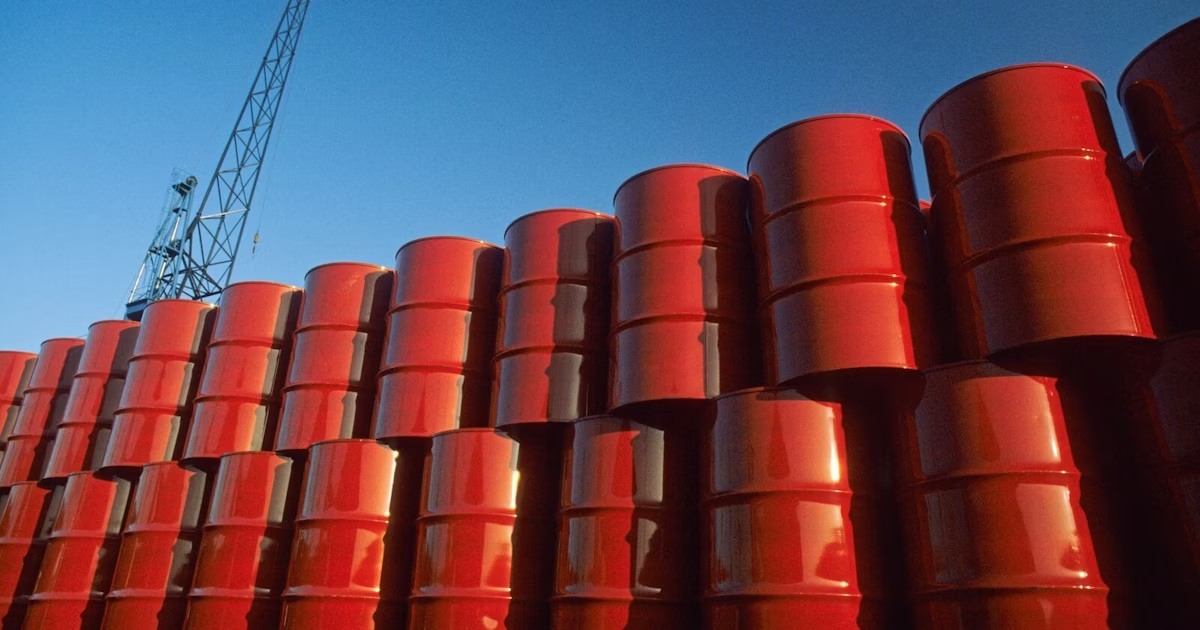API MPMS 10.4 Sediment and Water in Crude Oil Centrifuge Test
The API MPMS 10.4 procedure is a critical method used to measure the sediment and water content present within crude oil samples. This test helps ensure that petroleum products meet the stringent specifications set forth by industry standards, thereby enhancing product quality, reliability, and compliance with regulatory requirements.
The process involves centrifuging the sample at high speed for an extended period. During this time, any water and sediment settle out of the crude oil into a separate phase within a graduated cylinder. The volume of water is then measured, reported as a percentage by weight or volume, and expressed in milliliters per liter (mL/L).
The test is particularly important for ensuring that crude oil samples are free from contamination that could affect processing efficiency or lead to product quality issues downstream. By accurately measuring the sediment and water content, refiners can make informed decisions regarding further treatment steps such as dehydration or filtration.
Compliance with this method ensures that the petroleum products meet international standards like ISO 21705, which specify acceptable limits for water and sediment in crude oil samples. This is essential for maintaining product quality throughout the supply chain, from extraction to refining and final distribution.
The API MPMS 10.4 test plays a crucial role in the broader context of crude oil assay and characterization. By accurately quantifying the presence of water and sediment, this procedure contributes significantly to the overall understanding of the physical properties of crude oil. This information is vital for quality control purposes, as well as for optimizing processing techniques and ensuring product consistency.
The test also supports the development of new products by providing baseline data on the inherent characteristics of raw materials. This enables researchers and engineers to better understand how different types of crude oil behave under various conditions, which can inform process optimization efforts aimed at improving efficiency and reducing waste.
In summary, the API MPMS 10.4 test is an essential tool in the evaluation of crude oil quality, helping to ensure that products meet the highest standards of purity and reliability. By accurately measuring sediment and water content, this procedure supports critical decision-making processes throughout the petroleum industry.
Why It Matters
The measurement of sediment and water in crude oil is crucial for maintaining product quality and ensuring compliance with regulatory requirements. Water contamination can lead to several issues during processing, including increased corrosion rates, reduced lubricity, and fouling of equipment. Excessive amounts of sediment may cause plugging of pipelines or filter screens, leading to operational downtime and increased maintenance costs.
Accurate measurement is also vital for quality control and product consistency. Variations in sediment and water content can indicate changes in the source of crude oil, which might require adjustments in refining processes. In some cases, high levels of water or sediment could necessitate additional treatment steps before a product can be sold or used.
From an environmental perspective, reducing water contamination helps minimize the ecological impact associated with petroleum operations. Proper management of water content ensures that waste streams are minimized and that any discharged materials comply with stringent environmental regulations.
In summary, the API MPMS 10.4 test is not just a technical procedure but also a vital component in ensuring product quality, operational efficiency, and regulatory compliance across the oil and gas industry.
Eurolab Advantages
- Accurate and reliable results: Utilizing state-of-the-art equipment and highly trained personnel, Eurolab ensures precise measurement of sediment and water content in crude oil samples.
- Comprehensive testing services: In addition to API MPMS 10.4, we offer a wide range of other tests relevant to the oil & gas sector, providing comprehensive support for all your quality control needs.
- ISO/IEC accreditation: Eurolab is ISO/IEC accredited, ensuring that our testing procedures meet international standards and are trusted by industry leaders worldwide.
- Expertise in complex samples: Our experienced team has extensive experience handling challenging samples, including heavy oils and bitumen, providing reliable results for even the most complex crude oil matrices.
Eurolab's commitment to quality and excellence ensures that you receive accurate, consistent results every time. With our advanced facilities and dedicated staff, we are your trusted partner in maintaining product integrity throughout the supply chain.
Use Cases and Application Examples
| Use Case | Description |
|---|---|
| Crude Oil Quality Control | Monitoring sediment and water content helps maintain product quality and ensure compliance with industry standards. |
| Refining Process Optimization | Data from the test can inform process adjustments to improve efficiency and reduce waste. |
| Pipeline Maintenance Planning | Avoiding excessive water or sediment buildup helps prevent pipeline blockages, reducing maintenance costs and downtime. |
| Environmental Compliance Monitoring | Ensuring that discharged materials comply with environmental regulations by managing water content in waste streams. |
Refinery Yield Calculation: Accurate measurement of sediment and water can influence the calculation of refinery yields, ensuring efficient use of resources.
Petrochemical Product Development: Understanding the inherent characteristics of raw materials helps in formulating new products tailored to specific market needs.
These examples illustrate how Eurolab's API MPMS 10.4 test is integral to various aspects of the oil & gas industry, from quality assurance to process optimization and environmental management.





